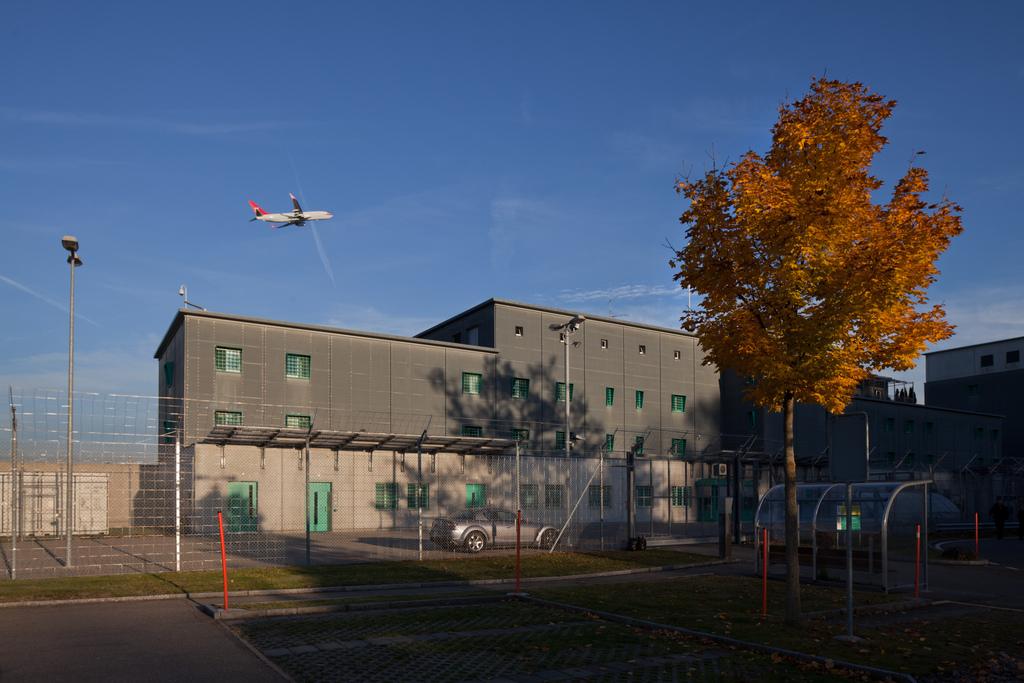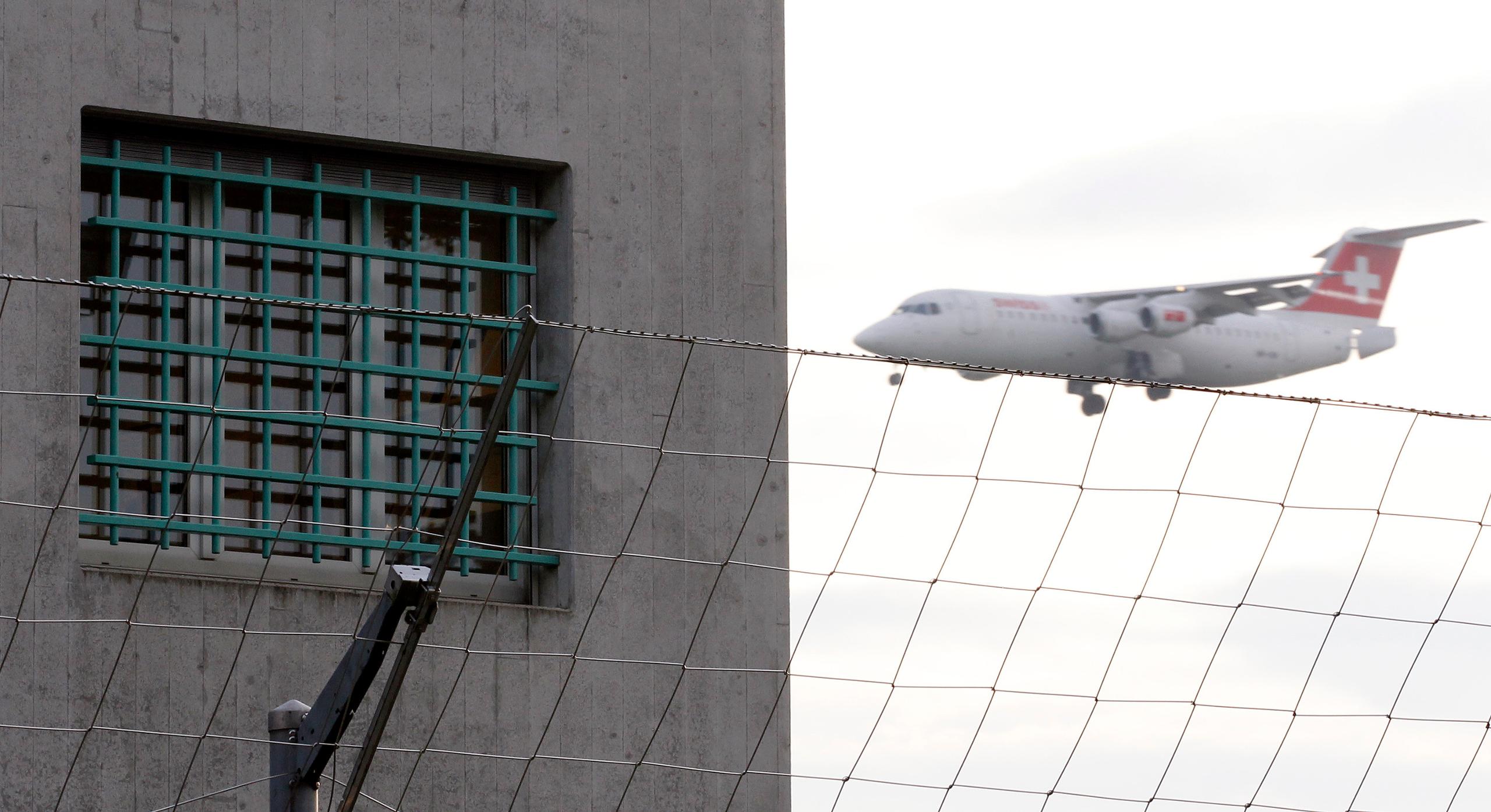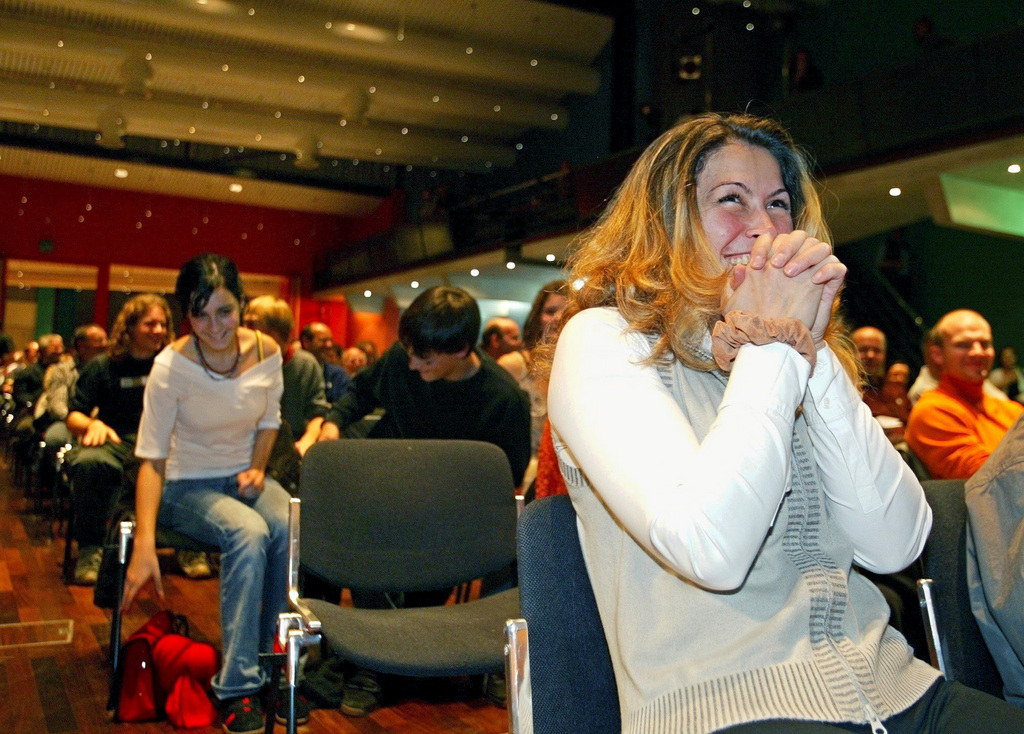
Swiss-born but threatened with deportation

People who were born in Switzerland but who do not have Swiss citizenship are concerned. On February 28, Swiss voters will decide – again – on deporting foreigners found guilty of certain crimes.
“On a scale of one to ten, I’d say nine! I’m very worried,” said Leyla Gül, co-general secretary of the centre-left Social Democratic Party and co-founder of SecondosPlus Bern, part of a national group that fights for citizenship and equal opportunities.
“I find the initiative fundamentally wrong – not only for people who are born here but also for people who have immigrated here. We have a system of law and the rules apply to everyone who lives here.”
It all goes back to November 2010, when 52.9% of voters accepted an initiative organised by the rightwing Swiss People’s Party calling for the automatic expulsion of non-Swiss offenders convicted of certain serious crimes. These included murder, rape, other serious sexual offences, violence such as armed robbery, drug trafficking, human trafficking, breaking and entering, and welfare fraud.
“I respect the will of the people, but I clearly belonged to those people who said we have a good legal basis and people sentenced for a crime will be punished here: they’ll pay a fine here and go to prison here,” Gül told swissinfo.ch.
‘Educational measure’
As it turned out, parliament struggled to implement the deportation initiative, rewording some passages and adding a clause that the courts would be able to intervene if they thought deportation would result in serious hardship for the person involved.
The People’s Party denounced this version, considering it “watered down”, and collected enough signatures to force another initiative calling for the implementation to the letter of their original initiative from 2010.
Parliament and the cabinet have recommended voters reject this so-called enforcement initiative – as they did, in vain, the 2010 deportation initiative. Explaining the cabinet’s position at the end of December, Justice Minister Simonetta Sommaruga warned that if it were accepted, in some cases people born in Switzerland would be deported to countries where they didn’t know anyone and might not even speak the language.
This is not a problem for People’s Party politician Yvette Estermann, herself a naturalised Swiss, having emigrated from Slovakia in her mid-twenties.
“What is a problem are the rapes and robberies going on in our country,” she told the Tages-Anzeiger newspaper on January 7. “We’re now sending young foreigners a clear signal: ‘Look sonny, this is where you’ll have to go if you commit a crime. Do you really want that?’ Our enforcement initiative is not least an educational measure.”

More
Deportation initiative back before voters
Deportations
FiguresExternal link from the Federal Statistics Office show that had the enforcement initiative been in force in 2014, 439 people born in Switzerland would have been deported. Under parliament’s version, the figure would have been 251.
The difference is the list of crimes that would result in deportation: the People’s Party’s version contains 40 more than parliament’s. In addition, repeat offenders of less serious crimes would be deported if their most recent offence had been committed within ten years.
Although no figures exist on how many Swiss-born people are currently deported every year, migration law expert Marc Spescha estimates the number to be “a few dozen”.
One case that made the headlines in December 2014 was of a third-generation Italian, born and bred in Switzerland, who was ordered to be deported to Italy, despite never having lived there.
According to the Bern court, the 33-year-old was “not willing or not able to adhere to the Swiss legal system”. The judges pointed to the more than 20 offences committed by the man, including robbery, theft, breaking and entering, as well as drug and gun offences. There were “no unsurmountable obstacles” to a fresh start in Italy, as the man was healthy and spoke Italian, they said.
In another case, a 30-year-old Macedonian, who had also lived his entire life in Switzerland, was convicted of taking part in illegal and dangerous car races and told to leave the country. The Zurich court said if the man’s wife and child didn’t want to follow him to Macedonia, they could keep in touch via the internet and Skype.
People who are deported may not apply to re-enter Switzerland for between five and 15 years, depending on the court’s decision. For some serious offences the minimum is ten years and for repeat offences it is 20 years.
Who is a foreigner?
Around 500,000 people living in Switzerland were born in the country to immigrant parents. But being born in Switzerland, which has a total population of 8.2 million, doesn’t automatically result in Swiss citizenship, unlike for example in the United States.
Of these 500,000, about a third have become Swiss nationals. The remaining 350,000 – who for various reasons have not applied for a Swiss passport – are included in the oft-repeated (and official) statistic that a quarter of the Swiss population is foreign.

More
Why some residents choose not to become Swiss
“The text of the initiative is clearly based on citizenship. There are those people with a Swiss passport and those without,” Gül said.
However, she points to divisions within the People’s Party which she says show that the initiative “has been badly thought through”. For example Hans-Ueli Vogt, a law professor at the University of Zurich and politician for the People’s Party, was recently slapped on the wrists by his party for saying that people born in Switzerland should not be deported if the initiative is accepted.
“Secondos [generally defined as second-generation Swiss born in Switzerland but without Swiss citizenship] might not belong to the community of Swiss citizens, but they belong to our social and legal community. We cannot and should not exclude people from this community,” Vogt told the Schweiz am Sonntag newspaper on January 2.
He said the main target of the initiative was not secondos but poorly integrated foreigners.
“The idea is to expel people who are resident here but who do not belong to our community because they have only been here for a short time and on top of everything do not obey our laws. It’s the right of every community to say ‘People like that must go!’”
Vogt added that one had to consider what “foreigner” means from a legal point of view. “Do that and you’ll conclude that a foreigner in the sense of the initiative is not someone who was born here.”
‘Unfair’
The People’s Party leadership begged to differ. “In that interview Hans-Ueli Vogt was expressing his personal opinion, which doesn’t correspond to that of the Swiss People’s Party,” said party general secretary Martin Baltisser.
“The overwhelming majority of secondos, who stick to the rules in Switzerland, would benefit from greater security,” he added.
Yvette Estermann agrees. “Secondos are not given preferential treatment now and they won’t be with the enforcement initiative. I share with many other secondos the opinion that the initiative is in their own interests. It’s a question of our reputation. We don’t want to be taken hostage by the minority of criminal secondos.”
Responding to the common argument that people who obey the rules have nothing to fear, Leyla Gül stresses that of course people should obey the rules. “We’re not saying otherwise. People who commit a crime should be punished – fined or sent to prison. But with the enforcement initiative people could be deported for a minor offence, which is completely disproportionate.”
Gül believes there are no instances in which foreigners should be deported. “Deportation is simply the wrong way of going about things. It would be the beginning of a two-class legal system.”
She cites the example of the son of Ueli Maurer, the Swiss finance minister and member of the Swiss People’s Party. In November 2015, aged 18, Maurer’s son crashed his car into a wall near his home. Witnesses said he admitted drinking. This was his second brush with police: in June 2014 he was caught trying to escape a police check because he had cannabis on him.
“If he had been a secondo, he would have been deported because it was a repeat offence. But because he’s Swiss he can stay. That for me is the main problem. It’s unfair.”
The apple thief
The newspaper 20Minuten put five hypothetical scenariosExternal link (in German) to the justice ministry, asking whether the crimes committed would lead to deportation under either the enforcement initiative or the government’s version of the deportation initiative. This is one of them:
20Minuten: A Spanish secondo is caught driving 50km/h in a 30km/h zone. Ten years later he steals an apple from his neighbour’s garden. Will he be deported?
Justice ministry: (Enforcement initiative) This case could lead to deportation. The speeding would result in a fine or prison sentence because of gross violation of the traffic law – so that counts as a previous conviction. If the man pinches an apple from his neighbour’s property, he’s committed unlawful entry and theft. He can be deported because this combination is among the enforcement initiative’s list of crimes. However, the neighbour has to press charges. In such a case it’s doubtful that a lawsuit would be brought.
(Government’s version of the deportation initiative) Also here deportation could be a possibility because the crimes committed are on the list. But the judges can reject deportation if it would mean “serious personal hardship” for the person involved and it doesn’t outweigh public interests.

In compliance with the JTI standards
More: SWI swissinfo.ch certified by the Journalism Trust Initiative




























You can find an overview of ongoing debates with our journalists here . Please join us!
If you want to start a conversation about a topic raised in this article or want to report factual errors, email us at english@swissinfo.ch.